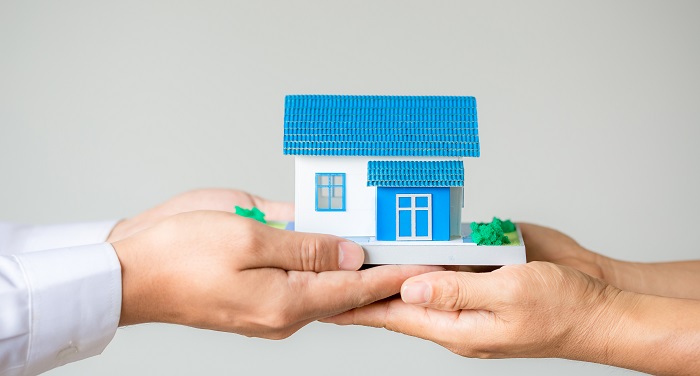We're hiring! if you'd like to join one of our award winning teams, read more on our Careers page.
Who Is Responsible For Mould In Rentals - Tenant Or Landlord?
By the end of 2021, a quarter of UK households will rent privately. That’s approximately 5.8 million households renting, due to the combination of soaring house prices and salaries remaining relatively static.
Anyone who has been a serial renter will know that the state of privately rented housing can vary hugely. Some landlords take pride in their work, furnishing and finishing their properties to a high standard; whereas others complete the job as quickly and cheaply as possible.
For the latter category, neglecting standards can cause all sorts of issues within the property. One of the most common is mould.
How does it happen?
In order to get mould on the walls of the property, there must first be some form of damp present. Sometimes it is easy to spot the cause, other times it is not. There are three different types of damp:
- Condensation
- Penetrating damp
- Rising damp
If you’ve got mould, chances are that condensation is the culprit. Condensation happens when moist air reaches a cold surface, usually a wall or window frame. Condensation can be a serious problem when a property is not adequately ventilated, insulated or heated.
Penetrating damp occurs when there is a problem with the plumbing within the walls or roof of the rented property. It can also be caused by leaks from the toilet, sink or bath.
Rising damp is usually only found on ground floor or basement levels. This is because rising damp is created by moisture underneath the property, which soaks into the base of the building and rises through the walls and floors.
What health problems can mould cause?
Mould can produce three things that cause problems:
- Allergens (causing allergic reactions)
- Irritants (usually to the skin)
- Toxic substances (can be inhaled or ingested)
As with other health issues, severity can be dependent on who is involved. The very young and very old are both more vulnerable groups, as are people with pre-existing respiratory problems or weakened immune systems. These groups should avoid mould as much as possible, in particular, what is known as ‘black mould’ the spores of which can cause serious harm to the lungs over time.
What does my landlord have to do?
Landlords are advised to abide by something called the ‘HHSRS’ (Housing Health and Safety Rating System). This asks that they ensure any problems with mould do not affect the physical or mental health of their tenants.
To do this, they must look after:
- The exterior of the property, including structure and roof
- Interior of the property, including water, gas and electricity, personal hygiene facilities, sanitation and drainage, food safety, ventilation and heating of both water and internal space.
The landlord should assess the property for potential hazards and minimise potential risks. They must undertake what is called ‘preventative measures’. This means they must ensure the property has adequate:
- Damp-proof courses
- Rain protection
- Frost protection
- Properly installed baths, sinks, showers and toilets
- Ventilation of roof and floor, and general usage
- Extraction for laundry, cooking and bathing
In fact, new legislation is in place to ensure that all landlords make their properties ‘fit to live in’.

What measures can I take?
There are steps you can take to reduce mould caused by condensation.
- Cooking - when cooking, make sure that you use pan lids, and switch the extractor fan on if you have one. If not, try to open a window.
- Laundry - dry your clothes outside wherever possible, but if you use radiators indoors, make sure all your windows are open for ventilation
- Doors and walls - Keep doors shut when showering or bathing. Also, make sure there is a gap between furniture and walls around the property.
It isn’t always as simple as a request to your landlord being fulfilled. In fact, these situations can often become contentious. Consult a lawyer if you need more advice on your rights when it comes to damp and mould in your rented property.


 Giles Dobson
Giles Dobson
Comments